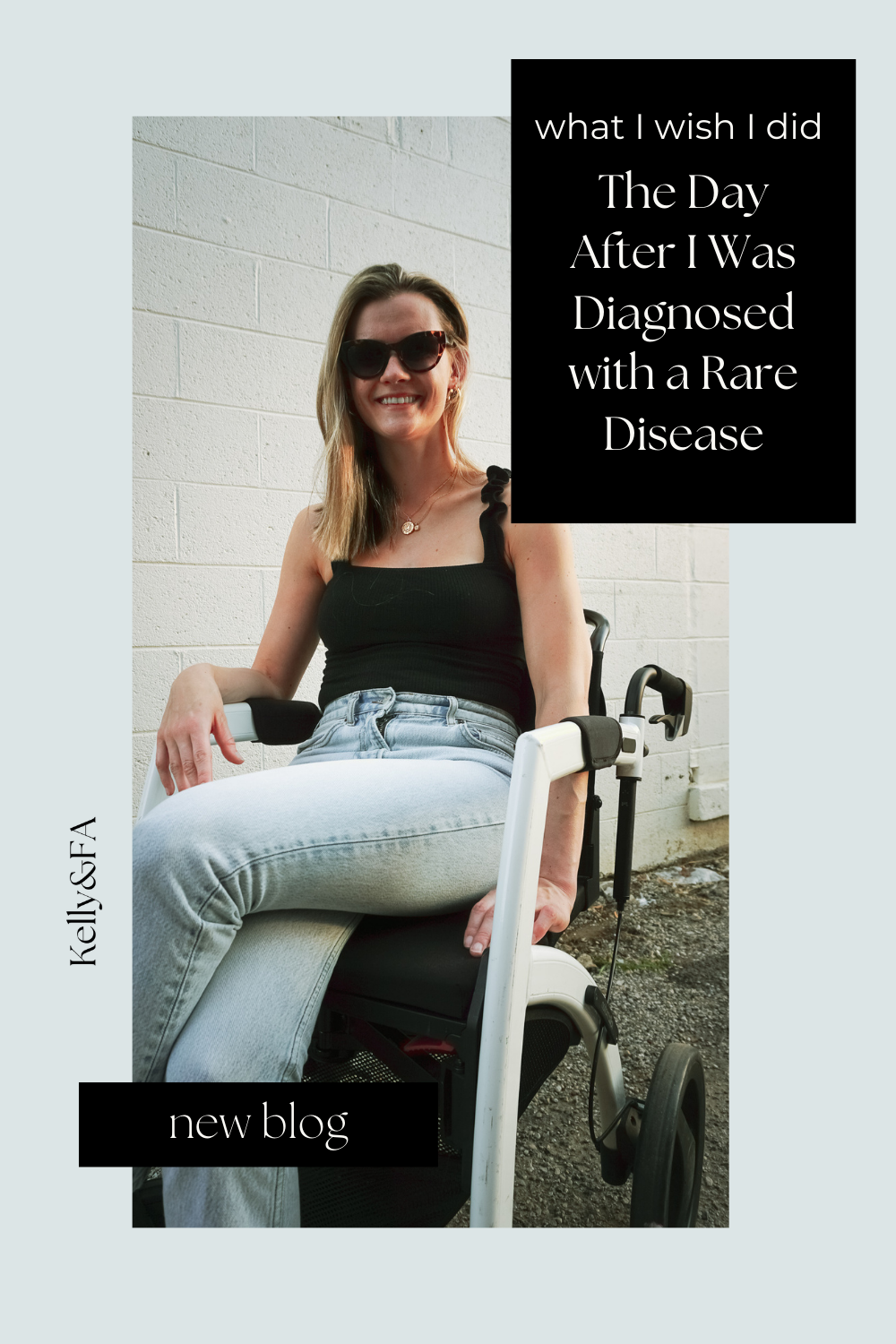What I Wish I Did the Day After I was Diagnosed with a Rare Disease
After my rare disease diagnosis, Friedreich’s Ataxia (FA), I was definitely not my best self. As you can probably imagine, being dealt a life-changing diagnosis as one is preparing to graduate high school and leave for college is not ideal timing, to say the least, (Not that there’s ever a good time.)
I went through years of excruciating stubbornness and denial. It was both unfair and unintentionally cruel to everyone around me and to myself.
After years of therapy, I know that is just the way I coped, and there is absolutely no shame in that. I was doing my best.
However…
There are definitely things I could’ve done to take baby steps to practice self-love and acceptance. Let me tell you what I wish I did after I was diagnosed in the case it might help you on your health journey.
A Snippet of My Mindset
January 2013, almost two years after my FA diagnosis, I found myself trudging through the snow in Bruges, Belgium along with a dozen other students in my study abroad program.
It was the first weekend of our semester-long program, so I barely even knew their names, let alone had any friends. I wore layers and layers of clothing, heavy winter boots, and a burdensome backpack filled with essentials for our weekend excursion to Bruges and Brussels.
After getting off the train, we made the long trek to the bus that would take us to Bruges. It was dark out. You could see snow falling in the light shining from the lamposts. I was struggling to keep up with the group but did my best to put on a brave face and hide my huffing and puffing.
Each step through the unshoveled snow was getting harder and harder. My boots suddenly weighed a thousand pounds.
“Just put one foot in front of the other” became my mantra that night.
Suddenly, someone pointed to the bus stop way up ahead. “Hey! That’s our bus! It’s going to leave any second and it’s the last one tonight!”
Just when I felt like I couldn’t go any further, I found myself sprinting along with the rest of the group to catch the bus.
Hours later at a local nightclub, I found myself finally starting to relax and enjoy myself, (thank you to the lower drinking age in Europe).
A girl in my group bounced up to me in the loud music and disco lights and grabbed my hand, leading me to a corner table.
“What gives you so much trouble walking?” she shouted above the blaring music. It was blunt and compassionate at the same time.
For the first time in my life, I told someone about FA.
2 years had gone by living with this debilitating disease, and I was finally able to utter those two letters, F-A.
What I Wish I Did After My Diagnosis
Open myself up to talking about it
Talking about FA, or being open to talking about FA would have changed the trajectory of my grieving process with my diagnosis. To anyone newly diagnosed and having a hard time talking about it, take baby steps. Not every conversation has to lead into worst-case scenarios or your hopes and fears living with this disease, or even be graceful and without tears.
Baby steps make a world of difference.
Finding a therapist who specializes in chronic illnesses was incredibly helpful, and I wish I hadn’t waited so long.
2. Engage with the FA community
Attending an FA symposium with hundreds of others who either live with FA, or are committed to finding a treatment or a cure, was a massive step in feeling understood and accepted.
I also became friends with Frankie, another young woman dealing with FA. (Check her out @fightingfa)
It took me a while to work up the courage to make friends, but once I did the community was unbeatable.
3. Start journaling
Years ago, I started journaling and it has been such a wonderful constant in my life.
Whenever I start to overthink (which is pretty much constant), I jot down some thoughts in a blank notebook. It helps me organize my thoughts.
Here is the blank journal I use.
My therapist got me hooked on keeping a gratitude journal, (I love the 5-Minute Journal.) Each day you write down 3 things you’re grateful for. This practice encourages you to notice more of the love and joy in your life.
5. Exercise Daily
Even if it’s only 5 minutes a day, consistent exercise is so good for your body and mind. If you have FA, you know exercise makes such a big difference in how your body feels.
Exercise helps everyone with their mental health, relieves anxiety, promotes creativity and focus, and improves sleep.
Exercising daily creates the habit and eventually, your mind and body will want to exercise.
I do some form of exercise every day now, but since FA is progressive, I wish I had built these habits sooner.
5. focus on Breathing
I’m a huge advocate of meditating daily. You can read more about it in my morning routine blog post. Try taking a few minutes each morning to focus solely on your breath.
6. Treat MYself with something that MAKES ME feel a part of the rare disease community
Any merchandise that reminds you you belong to a community is amazing. Bonus points if the merch is cute.
I created Kelly&FA to provide elevated merch for the rare disease, chronic illness, and disability communities that align with my style. I hope you love it!













At the end of the day, I have no shame regarding how I handled my rare disease diagnosis. I just know if I did these things, self-love would’ve come sooner.
How did you react to a difficult diagnosis? Is there anything you would add to this list? Let me know in a comment below x.










